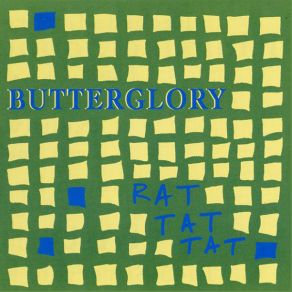Rat Tat Tat
Download links and information about Rat Tat Tat by Butterglory. This album was released in 1997 and it belongs to Indie Rock, Pop, Alternative genres. It contains 14 tracks with total duration of 43:45 minutes.

|
|
|---|---|
| Artist: | Butterglory |
| Release date: | 1997 |
| Genre: | Indie Rock, Pop, Alternative |
| Tracks: | 14 |
| Duration: | 43:45 |
| Buy it NOW at: | |
| Buy on iTunes $9.99 | |
Tracks
[Edit]| No. | Title | Length |
|---|---|---|
| 1. | On a Horse | 3:48 |
| 2. | Tundra | 2:05 |
| 3. | Novelty in Two | 3:17 |
| 4. | Oh Goodness | 2:52 |
| 5. | Come On! | 2:50 |
| 6. | Her Comedy's a Bore | 3:30 |
| 7. | Fight Fight Fight | 2:31 |
| 8. | Serpertine | 4:15 |
| 9. | Carmen Cross | 3:45 |
| 10. | Widows Smirk | 2:28 |
| 11. | Hexed | 4:06 |
| 12. | You Said a Mouthful | 2:58 |
| 13. | No Beads or Rosaries | 2:28 |
| 14. | Happy 1 2 3 4 | 2:52 |
Details
[Edit]Rat Tat Tat is less quirky and off balance than previous releases, as many of the raw edges have been jettisoned for the sake of focus. So while a splendidly listenable album, its sophomoric charms have been lost to a growing professionalism. Gone also is the raw fuzz in favor of more straightforwardly hooky songs which writhe with an energy and tempo all their own. The guitar is generally clean, with a tendency toward a light jangle. The more sedate, even subdued nature of the album compares favorably with mid-period Yo La Tengo, and in that sense it works better as a whole, though without the kind of standout, obvious singles that dotted previous albums and which made Downed such a delight. The opening track, "On a Horse," illustrates the new aesthetic beginning with a slowly building part, which after lingering is joined by a recursive riff reminiscent of Pink Flag-era Wire, as Suggs' light indie rock baritone mews within, as though the guitar is closing in, and the tempo gallops to the end. "Fight Fight Fight" works a martial, bolero beat, "Tundra" features an almost-new wave/Talking Heads rhythm against a clean, tightly wound riff, while "Novelty in Two" reaches back toward previous albums with its vaguely lethargic pace before a break featuring Christmas-y bells and a melancholy guitar resolution. Debby Vander Wall continues to offer the perfect vocal counterbalance to Suggs, leading two of the album's best songs ("Oh Goodness," "Carmen Cross") with her nearly broken-spirited, low-key singing. Not as immediately winning as previous releases, the aesthetic is much more "Pale Blue Eyes" than "Beginning to See the Light," to name-check their increasingly apparent Velvet debts.